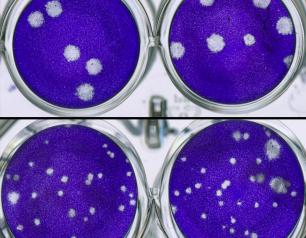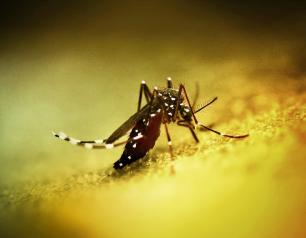4 Results
COVID-19 Respiratory Treatment Effective in Encephalitis Study
Antiviral drug molnupiravir, a COVID-19 treatment, was effective when tested in mice in preventing viruses that cause brain swelling, particularly in children. The scientists studied LACV because it broadly represents several RNA viruses that cause disease in the CNS, including Jamestown Canyon and Cache Valley viruses – which also were part of the study – and rabies, polio, West Nile, Nipah and several other viruses not part of the study.

Scientists Discuss Prototype Pathogens for Pandemic Preparedness
A special Oct. 19 supplement to the Journal of Infectious Diseases contains nine articles intended as a summary of a National Institute of Allergy and Infectious Diseases (NIAID)-hosted pandemic preparedness workshop that featured scientific experts on viral families of pandemic concern.

World Mosquito Day 2023—How Mathematical Modeling Reveals the Link Between Climate Change and Mosquito-Borne Diseases
As global temperatures rise, it has become more urgent to understand the interactions between climate, mosquitoes, and the pathogens mosquitoes transmit to humans. NIAID Now spoke to Luis Chaves, Ph.D., a 2023 Scholar with the National Institutes of Health (NIH) Climate Change and Health Initiative, about his work about the impacts of environmental change on the ecology of insect vectors and the diseases they transmit.

Promising Advances for Antibody Treatment of Viruses that Cause Neurologic and Arthritic Diseases
NIAID scientists and colleagues are one step closer to developing a safe and effective therapy against alphaviruses, which are spread by mosquitoes and can cause two types of disease in people: causing severe neurological impairment such as encephalitis (brain swelling) or crippling muscle pain similar to arthritis.


